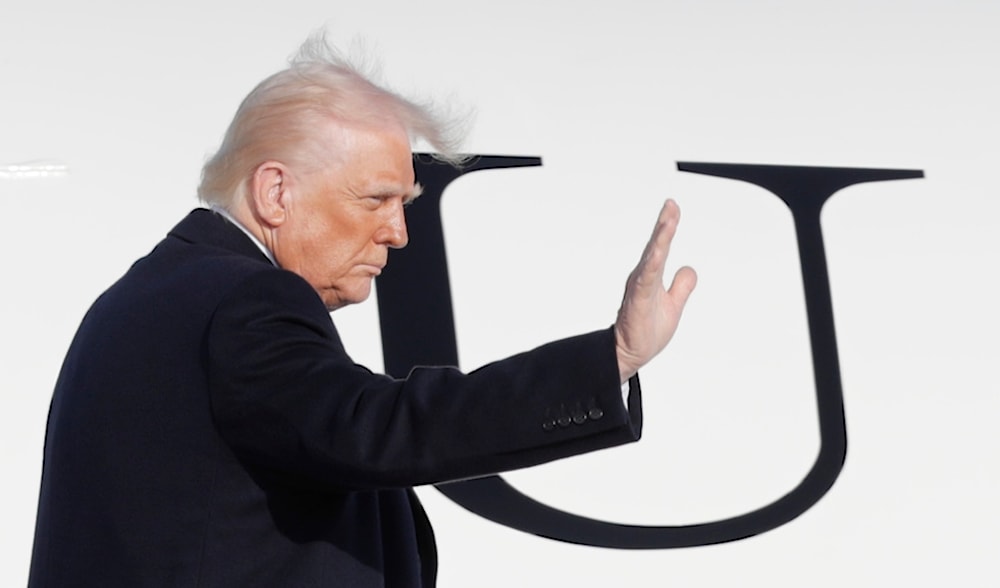Trump annuls legal status for 530,000 Latin Americans in US
A Federal Register notice has stated that the Trump administration revoked paroles granted to hundreds of thousands of Cubans, Haitians, Nicaraguans, and Venezuelan immigrants.
-

President Donald Trump waves from the stairs of Air Force One at Joint Base Andrews, Md., Friday, March 21, 2025 (AP)
As of April 24, the temporary legal status of 530,000 Cubans, Haitians, Nicaraguans, and Venezuelans in the United States will be revoked as part of President Donald Trump's massive immigration crackdown.
The Trump administration had decided to cut short a two-year "parole" granted to migrants who had sponsors in the US under the former Biden administration as per the current president's January 20 executive order.
In the same context, Trump is also mulling over the nullification of paroles granted to 240,000 Ukrainians seeking asylum in the country due to the war with Russia.
In 2022, Biden introduced a parole entry program for Venezuelans and extended it in 2023 to include Cubans, Haitians, and Nicaraguans as his administration faced a surge in illegal immigration from these countries, manifesting diplomatic and political tensions between the US and these nations.
The new legal pathways were introduced as Biden sought to curb illegal crossings at the US-Mexico border.
The Trump administration's decision to revoke legal status for half a million migrants may leave many at risk of deportation if they choose to stay in the US. It's unclear how many individuals who entered the US on parole now have another form of legal protection or status.
In a notice set to be published in the Federal Register on Monday, the US Department of Homeland Security stated that removing parole status would make it easier to place these migrants in the expedited removal process, a fast-track deportation procedure.
This policy, implemented under the Trump administration in January, allows expedited removal for migrants in the US for two years or less.
Last week, an internal memo seen by Reuters revealed that the Trump administration is weighing new travel restrictions on citizens from 43 countries categorized into three groups. The first group, which includes Afghanistan, Iran, Syria, Cuba, and DPRK, would face a full visa suspension.
A second group, comprising Eritrea, Haiti, Laos, Myanmar, and South Sudan, would see partial suspensions impacting tourist, student, and some immigrant visas, though certain exceptions would apply.
The third group includes 26 nations, such as Pakistan, Belarus, and Turkmenistan, which would face a partial suspension of visa issuance unless their governments address "deficiencies" within 60 days.
Read more: Judge scolds DOJ lawyer for dodging Alien Enemies Act questions

 3 Min Read
3 Min Read








